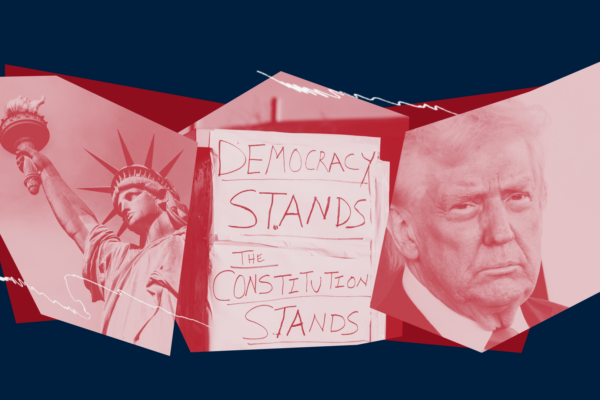Freedom of Speech and Association
The First Amendment protects our freedom to speak, assemble, and associate with others. These rights are essential to our democratic system of governance. The Supreme Court has written that freedom of expression is "the matrix, the indispensable condition of nearly every other form of freedom." Without it, other fundamental rights, like the right to vote, would cease to exist. Since its founding, the ACLU has advocated for broad protection of our First Amendment rights in times of war and peace, to ensure that the marketplace of ideas remains vigorous and unrestricted.

The First Amendment protects our freedom to speak, assemble, and associate with others. These rights are essential to our democratic system of governance. The Supreme Court has written that freedom of expression is "the matrix, the indispensable condition of nearly every other form of freedom." Without it, other fundamental rights, like the right to vote, would cease to exist. Since its founding, the ACLU has advocated for broad protection of our First Amendment rights in times of war and peace, to ensure that the marketplace of ideas remains vigorous and unrestricted.
The Latest

A Year of Resistance in the Nation’s Capital: How D.C. Resisted the First Year of the Second Trump Administration

Demonstrator Sues after Being Handcuffed and Detained for Playing the Star Wars “Imperial March” Theme to Protest National Guard Members in D.C.
Cases, Campaigns & Legislation
Quiñonez v. United States - Seeking To Expand Federal Officer Accountability for Constitutional Violations
O’Hara v. Beck: Defending the Right To Protest the National Guard
Associated Press v. Budowich - Opposing Government Retaliation Against News Outlet for Refusing To Parrot White House's Views
Banks v. Hoffman - Advocating for Robust Protection Against Lawsuits Used to Chill Speech
Stay Informed
Sign up to be the first to hear about how to take action.
By completing this form, I agree to receive occasional emails per the terms of the ACLU’s privacy statement.
By completing this form, I agree to receive occasional emails per the terms of the ACLU’s privacy statement.


